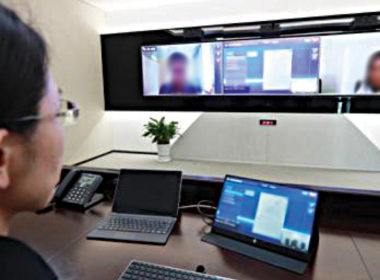Snapshot
- Two recent cases concerning adjournments illustrate the implications of the COVID-19 pandemic and the influence of the Federal Court’s Special Measures in Response to COVID-19 note on practice and procedure.
- It seems there has been a rapid re-adjustment of the drivers underlying the ‘just, quick and cheap’ rationale for the resolution of disputes, with parties having to demonstrate a certain level of prejudice or unfairness (as opposed to mere inconvenience), before an adjournment will be granted.
Only a few months ago, the term COVID-19 didn’t even exist – now COVID-19 and coronavirus are the most widely searched terms on Google and are virtually universal terms, no matter one’s language. The significant and wide-reaching effects on day to day life and the economy, also extend to the courtroom. On 23 March 2020, the Chief Justice of the Federal Court of Australia (‘FCA’) released the Special Measures in Response to COVID-19 information note (‘Special Measures note’). The note focuses on the health and safety of practitioners, clients, judicial personnel and their families by requiring minimal in-person attendance at Court premises and implementing alternative measures for conducting proceedings. The note mandates that all hearings will proceed with the use of video conferencing technology or by telephone conferencing, with some matters to be addressed on the papers, if appropriate.
The implications of the COVID-19 pandemic, and the influence of the Special Measures note on Federal Court practice and procedure, are seen in two recent cases concerning adjournments. On 9 April 2020, Lee J delivered a judgment in Australian Securities and Investments Commission v GetSwift Limited [2020] FCA 504 ruling that an adjournment would not be granted, despite witnesses being located in the ‘epicentre’ of the pandemic, New York. On 16 April 2020, Perram J in Capic v Ford Motor Company of Australia Limited (Adjournment) [2020] FCA 486 held that the inherent technological difficulties associated with running virtual trials did not, in the circumstances, warrant an adjournment.
These decisions raise several interesting points. They are, of course, consistent with the FCA’s Special Measures note. Current circumstances are anything but ordinary, and they arguably require out of the ordinary solutions to promote justice and continue legal processes. However, there is some concern about pursuing e-trials to avoid delays and achieve just, quick and cheap resolution of matters, when the circumstances would have likely warranted an adjournment only a few months ago. It seems there has been a rapid re-adjustment of the drivers underlying the ‘just, quick and cheap’ rationale, with the parties having to demonstrate a certain level of prejudice or unfairness before an adjournment will be granted. These decisions may have implications for how the concept will be interpreted post-COVID-19.




